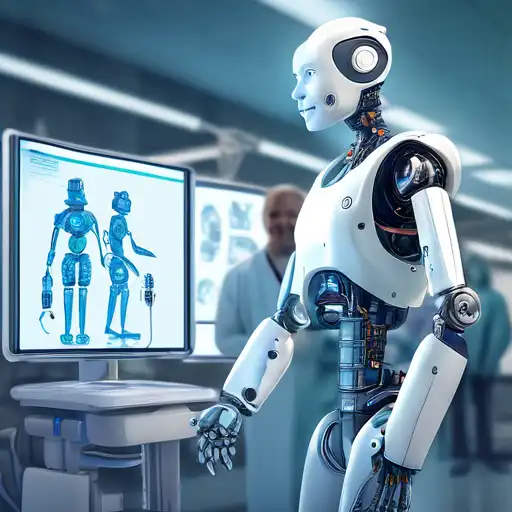The Dawn of Robotics in Healthcare
The integration of robotics into healthcare is revolutionizing the way medical services are delivered. From surgical procedures to patient care, robotics technology is enhancing efficiency, precision, and outcomes in the medical field. This transformative shift is not just improving patient care but also streamlining operations within healthcare facilities.
Applications of Robotics in Healthcare
Robotics technology finds its application in various aspects of healthcare, including but not limited to:
- Surgical Robots: These allow surgeons to perform complex procedures with higher precision, flexibility, and control than conventional techniques.
- Rehabilitation Robots: Designed to assist patients in recovering from strokes, injuries, or surgeries, these robots support physical therapy and mobility.
- Pharmacy Automation: Robots are used in pharmacies for tasks like counting pills, labeling, and dispensing medications, reducing human error.
- Disinfection Robots: In the wake of the COVID-19 pandemic, these robots have become crucial in sterilizing hospitals and reducing the spread of infections.
Benefits of Robotics in Healthcare
The adoption of robotics in healthcare brings numerous benefits:
- Enhanced Precision: Robots can perform tasks with a level of accuracy that surpasses human capabilities, especially in surgeries.
- Reduced Recovery Times: Minimally invasive robotic surgeries lead to quicker patient recovery.
- Increased Safety: Robots can handle hazardous materials and perform tasks in dangerous environments, protecting healthcare workers.
- 24/7 Availability: Unlike humans, robots can work around the clock, ensuring continuous patient care and support.
Challenges and Considerations
Despite the advantages, the integration of robotics in healthcare faces challenges:
- High Costs: The initial investment and maintenance of robotic systems can be prohibitively expensive for some institutions.
- Training Requirements: Healthcare professionals need specialized training to operate robotic systems effectively.
- Ethical Concerns: The delegation of care to robots raises questions about patient privacy and the depersonalization of healthcare.
The Future of Robotics in Healthcare
The future of robotics in healthcare is bright, with ongoing advancements promising even greater integration. Innovations like AI-powered diagnostic robots and telepresence robots for remote consultations are on the horizon. As technology evolves, the potential for robotics to further transform healthcare is limitless.
For more insights into how technology is shaping the future of healthcare, explore our technology in healthcare section.
